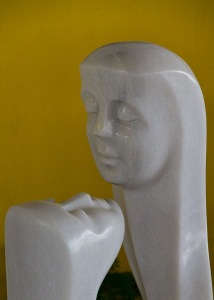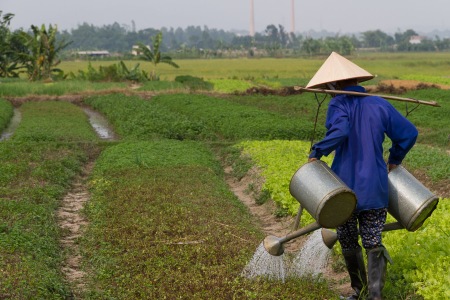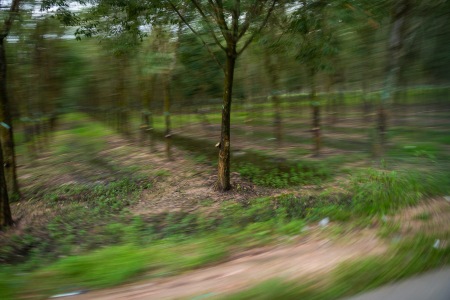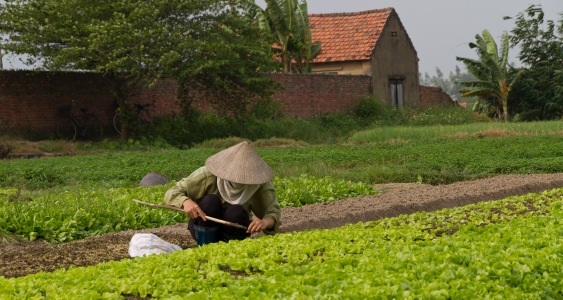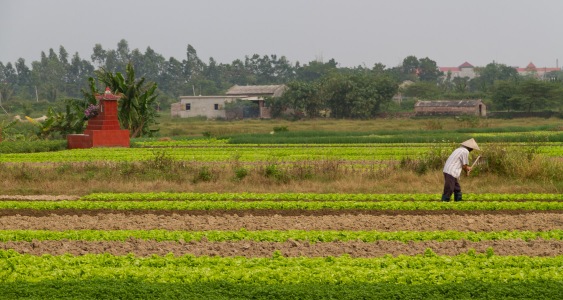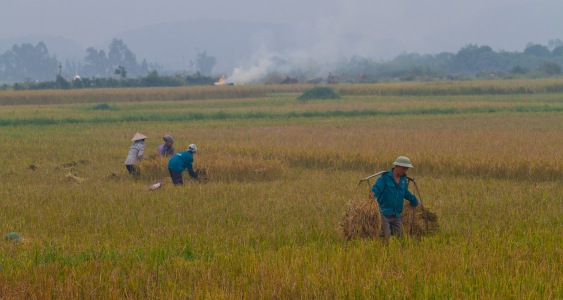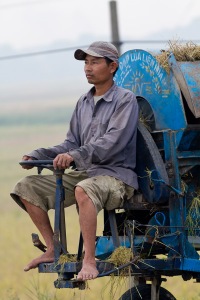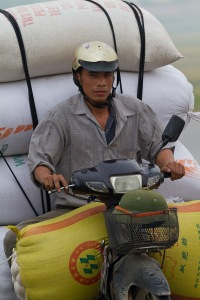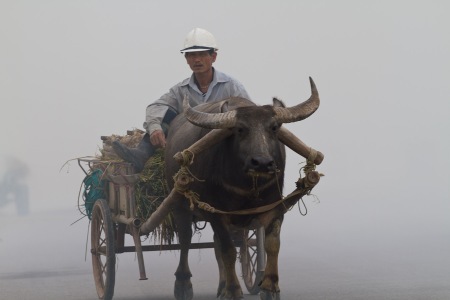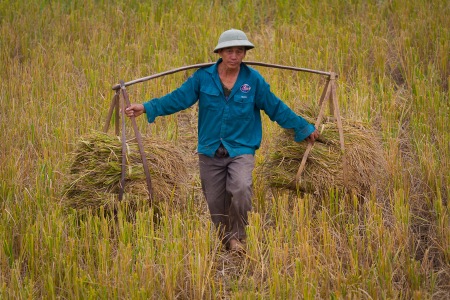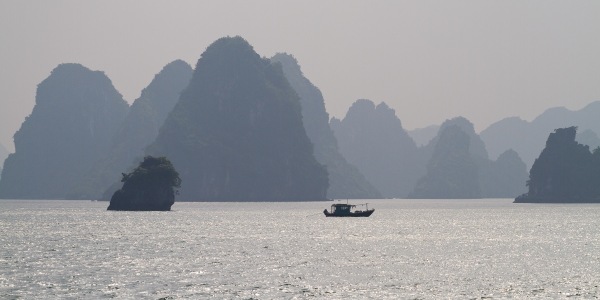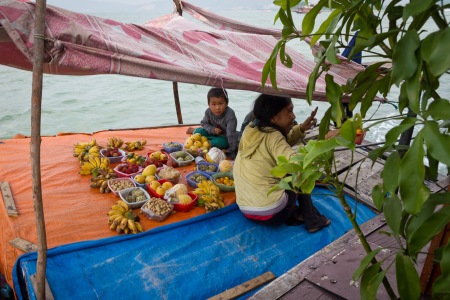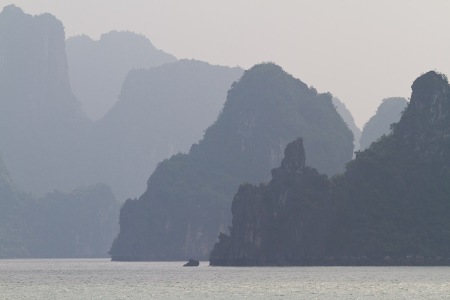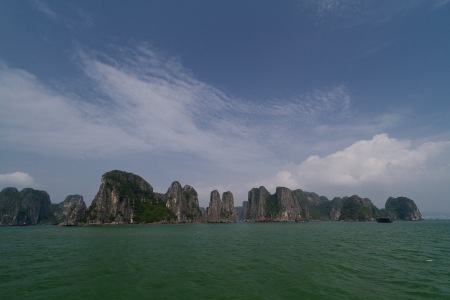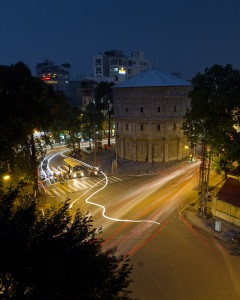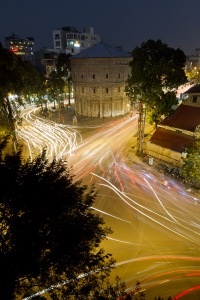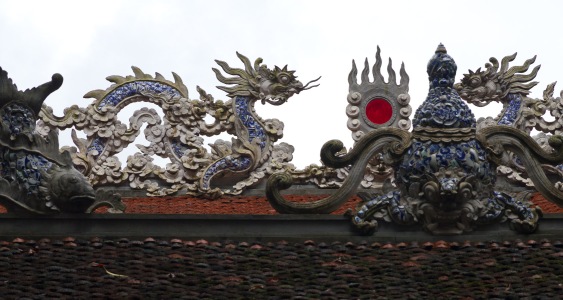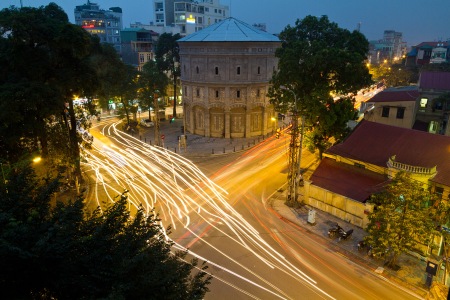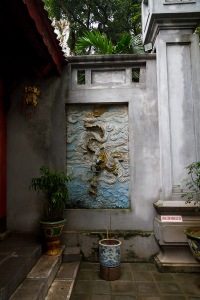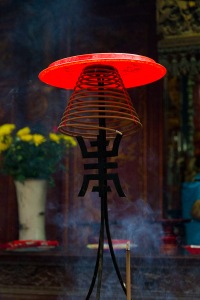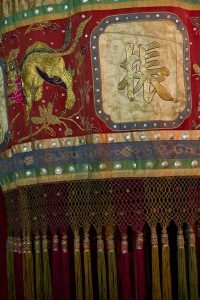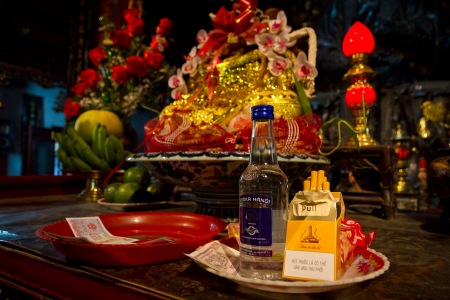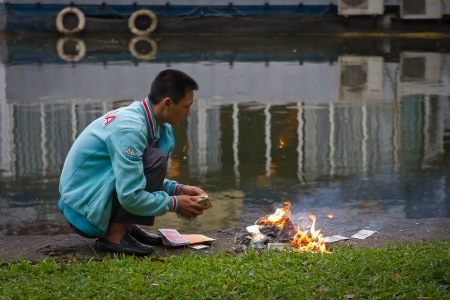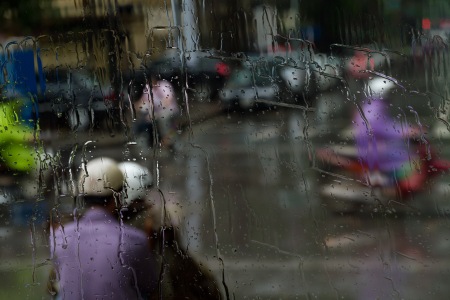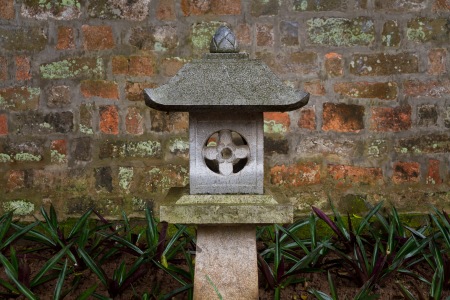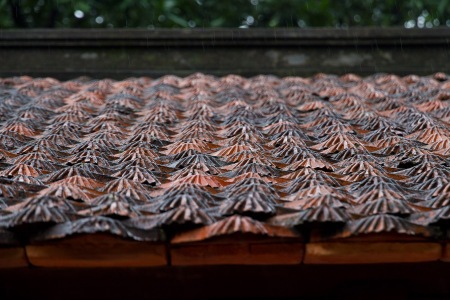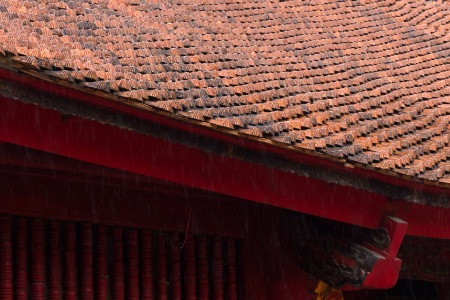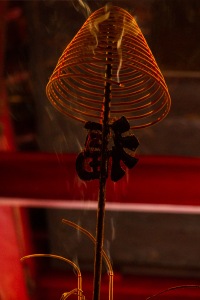October 25, 2011: “After the previous night’s combined cultural/logistical pre-port, I found myself wondering what it would be like to visit the Cu Chi Tunnels, a network of tunnels the Viet Cong used in ‘The American War’ (as they aptly call it here) to infiltrate an air base that the U.S. built right on top of them. Our arrival in the Port of Ho Chi Minh City (formerly known as Saigon) was preceded by a beautiful steam up the Saigon River, sometimes requiring the MV Explorer to turn rather rapidly–at least compared to what we’re accustomed to–crossing entire oceans.
Our trip to the Cu Chi Tunnels didn’t start for a few hours after arriving, so we did our typical ‘walk around 200 meters outside the port gate’ for 45 minutes, immediately coming across copious ‘North Face’ backpacks, hats, bags, suitcases, t-shirts, you name it. Did you know that virtually all the major backpack brands are manufactured here in Vietnam, by only a handful of companies? Prices for these ‘North Face’ knockoffs were perhaps 20% on the dollar, and it appeared to my well-calibrated ‘gear eye’ to provide maybe 30% the value of the real thing. So, all in all, that’s about a 33% savings over buying in the U.S.!… [continued below gallery]
Vietnam in the rear view:
Vietnam is one of the countries I’d looked forward to most, after hearing we’d be traveling on the Fall 2011 Voyage. I can’t say that I had any expectations (at least none very specific), although hearing Joey and Jonas’ stories over the years made me very curious about the country, its culture, its past as well as its present. I’m not sure what year they were last here, but I wonder if they’d even recognize Saigon, while Hanoi seems a more traditional culture, resistant to change.
The word ‘Vietnam’ has been in my memory practically as long as I can remember; I can still see the ‘George McGovern’ drawing I did as a kid, hung up in the Berkeley campaign headquarters office by Lorien’s mother, Rita. Nixon was running against him, using the platform ‘Stop the War’, though few Berkeleyites believed it. The time in U.S. history was one of civil unrest, and Berkeley seemed right in the thick of it. Up until shortly after 9/11 I might have posited that the Vietnam War left behind an era of offensive U.S. engagement in affairs that might not prove beneficial to either ‘side’. Some argue that the Vietnam/American War may have halted a spread of communism that might have overtaken the west. I personally think that the more extreme forms of communism were already slowly dying on the vine, but as we cannot change the past (despite how hard ‘the history books’ try), there is no way to know for sure. Was the Vietnam/American War a benefit to the southeast Asian people? Based upon what happened in Cambodia shortly thereafter, I’d have to doubt it. Was the war a benefit for the American people? Based upon many things, including both how veterans fared and were treated afterwards, I think not.
Communism still exists, and although it is alive an well in Vietnam, many people consider it a sort of ‘Communism Lite’. The government of Vietnam has chosen to open the economy in many ways, though not necessarily to outsiders. 75% of the population of Vietnam is under 35 years old, and thus many do not even remember the Vietnam War, much like the students on board the MV Explorer who only know it in a historical context. They will in the future, however, have some personal knowledge of the wars in Iraq and Afghanistan, though it remains to be seen what is written in the history books. Just as we ‘took over’ for the French in the Vietnam War, it may be argued that we ended up inheriting an unwinnable situation in Afghanistan from Russia, although the web of circumstances that got us there is certainly different. Based upon our experiences in Vietnam, should we have known better, at least in regard to Iraq?
I choose to revisit these issues in my mind because of how completely the Vietnamese people seem to have forgiven us, both North and South, old and young, and regardless of the fact that the country remains communist. Their country was ravaged by war for hundreds of years before we came in support of France, but has been relatively peaceful since. Coincidence? Only time will tell, though the Vietnamese people can envision future disagreements with China to the north, mostly over water issues. China’s thirst for electricity has driven the country to build dozens of hydroelectric dams, both choking and starving rivers that have for hundreds of years run their courses as they might, often into other countries. As in so many other parts of the world, the availability of clean water sources could prove to be a formidable challenge to sustainable future growth.
The World Bank deems Vietnam on of the best performing economies in the world in the last 10 years, largely a result of the U.S. bilateral trade agreement signed in 2004, seven years after the embargo was lifted in 1994, which had been in place 30 years. Many large high-tech companies have chosen to locate large factories in Vietnam, partly as a diversification strategy to get away from China’s popularity.
Vietnam does have some challenges, despite how rosy things are economically. Inflation is currently 15-20%, coincident with 6% GDP growth over the last 5 years. There is protectionism in some business sectors, it has corruption issues ranging from local police to customs officials, an aging education system, and an infrastructure that is improving but still strained by rapid growth. Intellectual property rights barely even exist here, pollution is on the increase while social inequalities have improved. Vietnam is changing very fast, but can it continue?”
If you’d like to visit my original Blogspot post for this country, please start here: 10/25/11: Vietnam Day 1: Cu Chi Tunnels


